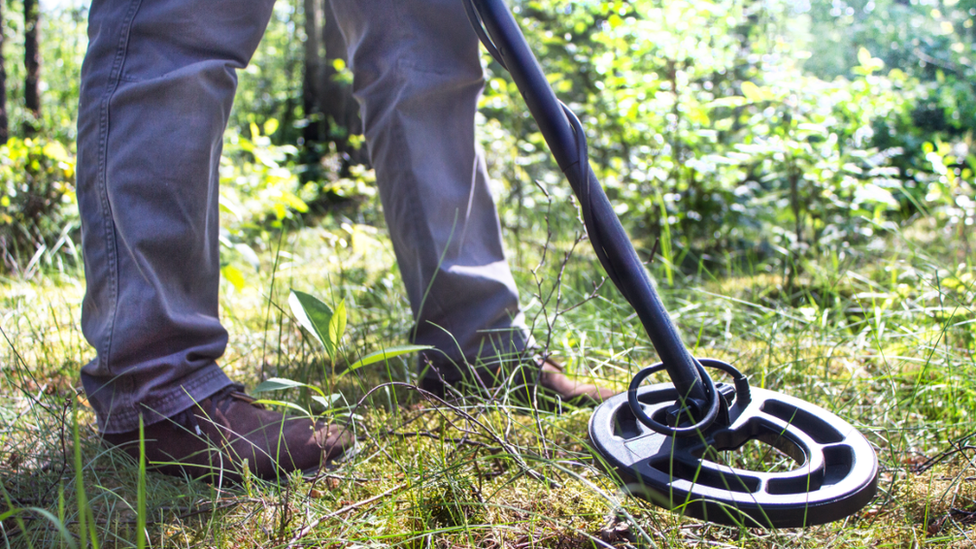Man gets suspended sentence for hiding Viking treasure
- Published
The history stolen by metal detectorists
A man who hid coins from a £3m Viking hoard in a magnifying glass handle has been sentenced.
Paul Wells was one of four men guilty of stealing and concealing about 300 coins found in a field in Eye, near Leominster in Herefordshire, in 2015.
The coin seller was handed a 12-month suspended jail sentence at Worcester Crown Court.
He was sentenced after his co-defendants because he was ill at the time of his conviction in November.
The 60-year-old from Cardiff, and fellow seller Simon Wicks, were found guilty of concealing the find, which included a 9th Century gold ring, a dragon's head bracelet, a silver ingot and a crystal rock pendant.
They were approached by metal detectorists George Powell and Layton Davies to release the coins to the market.
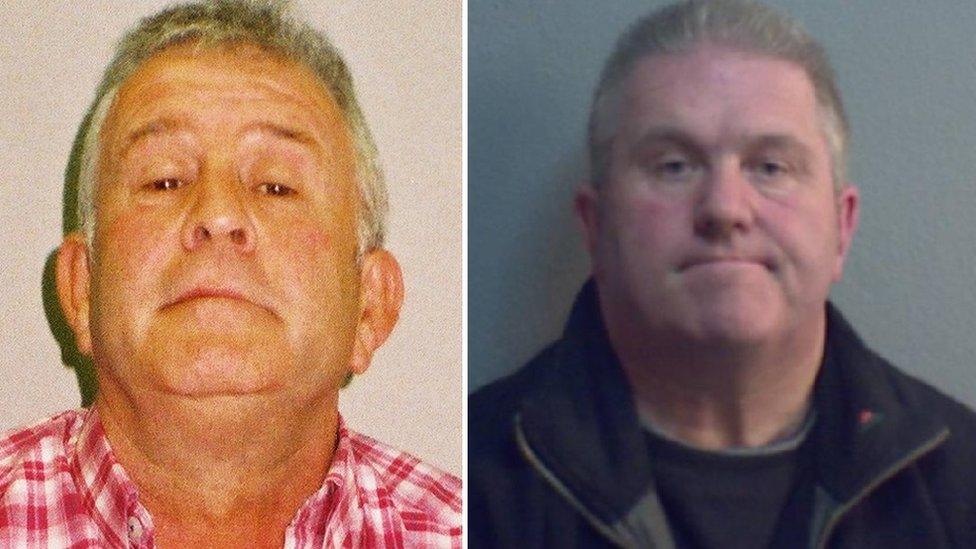
Paul Wells was convicted of concealing the find alongside fellow dealer Simon Wicks
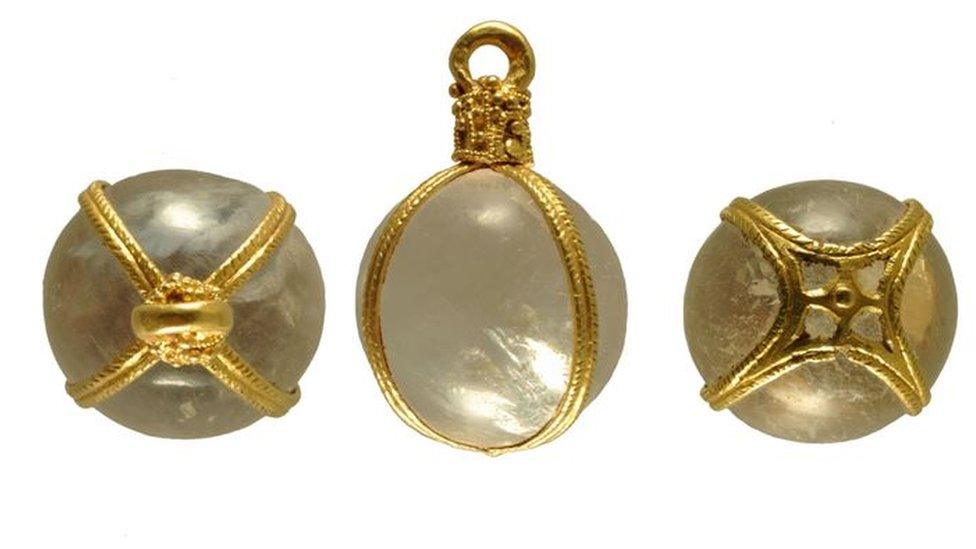
Among the hoard was a crystal pendant that dates to about AD600
Wells admitted during his trial he knew the coins should be declared under the Treasure Act, which demands significant finds be reported so proceeds can be shared between the finder and landowner, and to allow for their historical significance to be examined.
Experts said the coins, which are Saxon and believed to have been hidden by a Viking, provide new information about the unification of England and show there was an alliance previously not thought to exist between the kings of Mercia and Wessex.
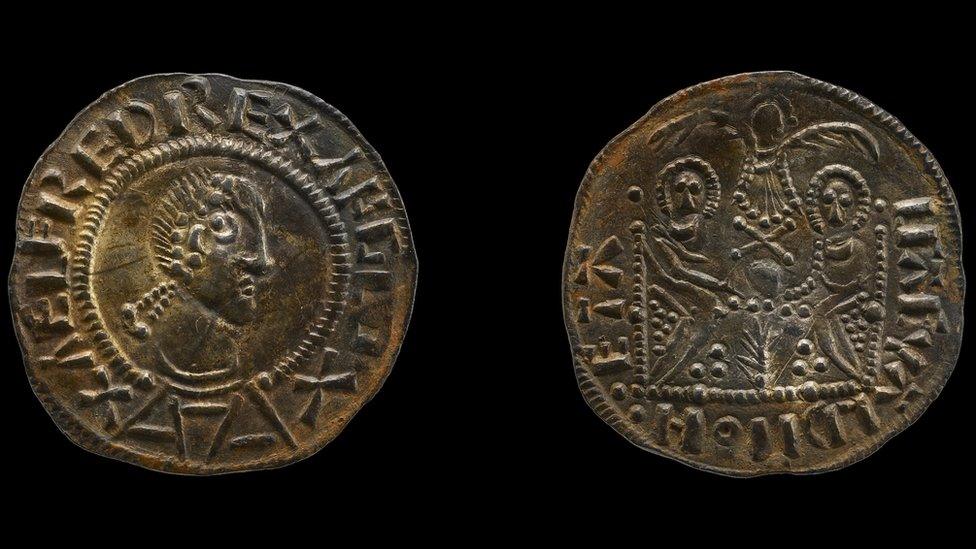
Most of the estimated 300 coins believed to be in the hoard are still missing
Just 31 coins - worth between £10,000 and £50,000 - and some pieces of jewellery have been found, but the majority of the hoard is still missing.
Judge Nicolas Cartwright suspended Wells's jail sentence for two years and ordered him to do 15 days of rehabilitation and 240 hours of unpaid work.
He acknowledged Wells had "significant health difficulties", which made his position "very different to that of your co-accused" .

Follow BBC West Midlands on Facebook, external, on Twitter, external, and sign up for local news updates direct to your phone, external.
- Published21 November 2019
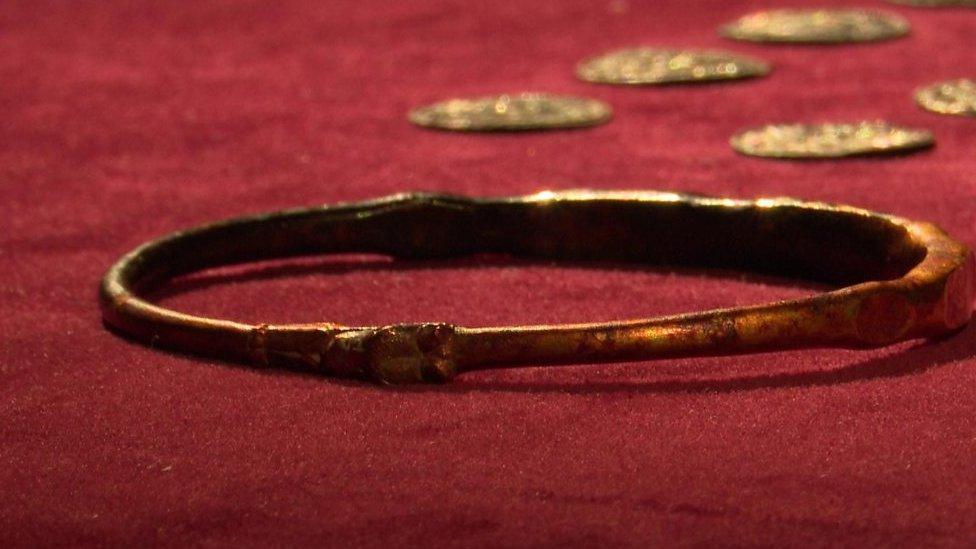
- Published21 November 2019
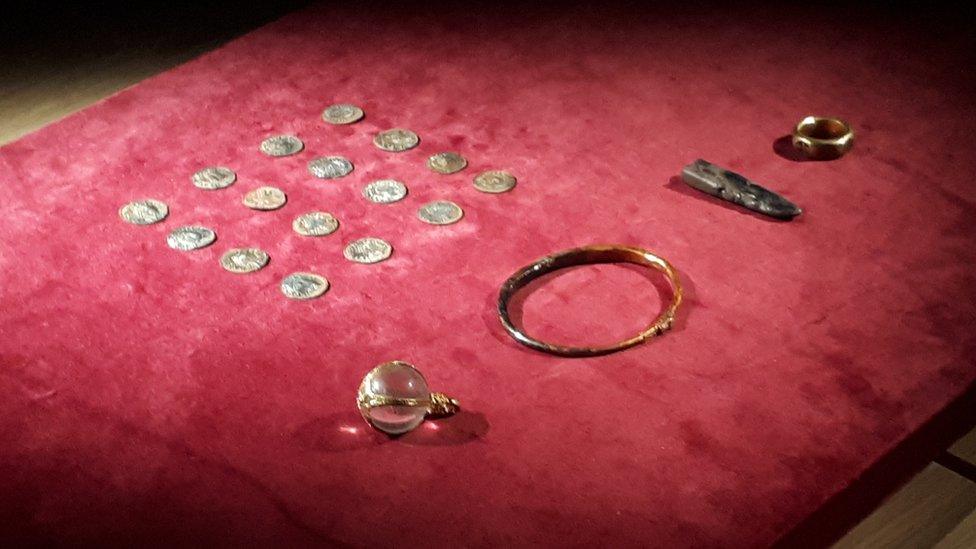
- Published28 October 2019
